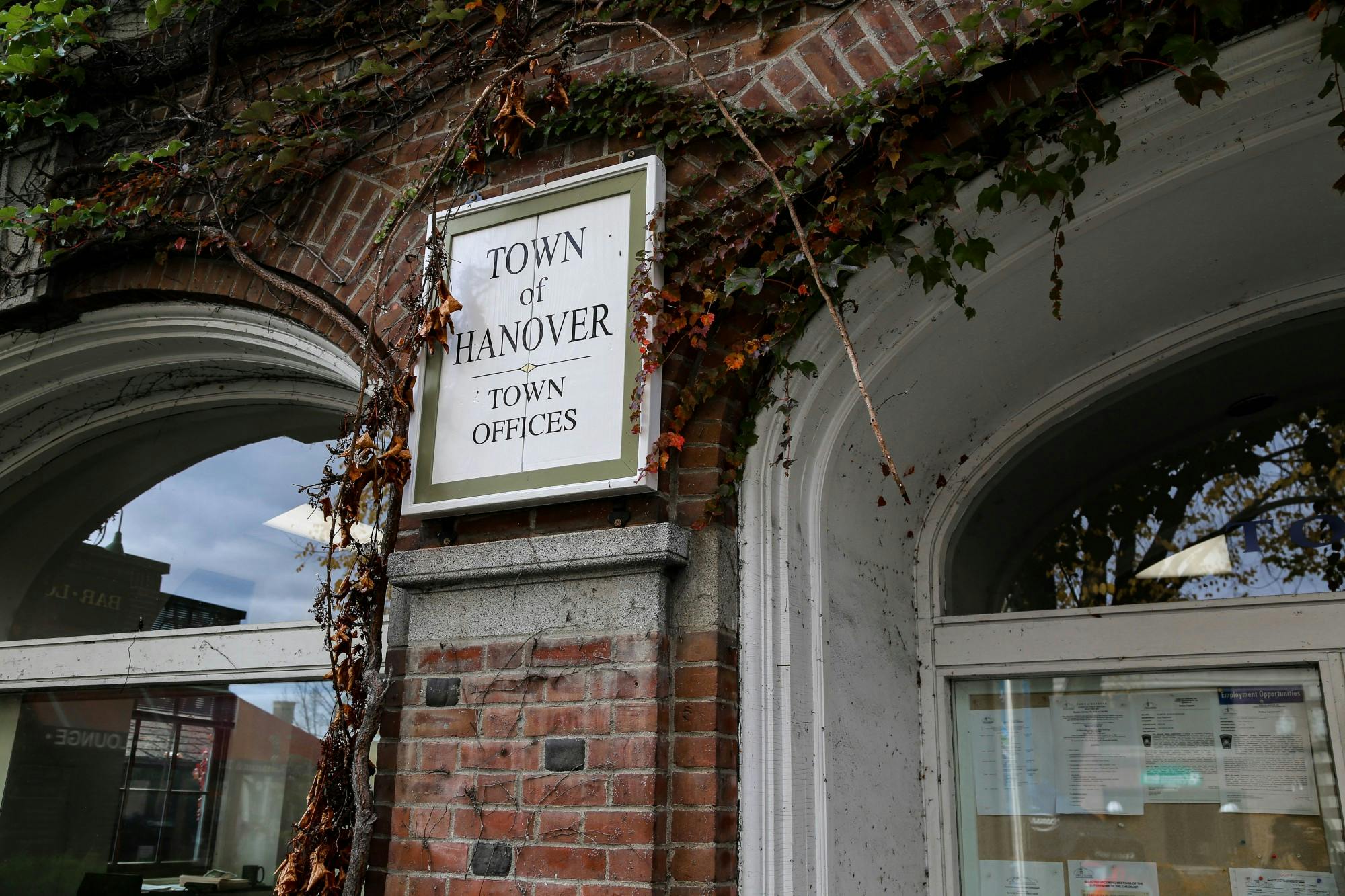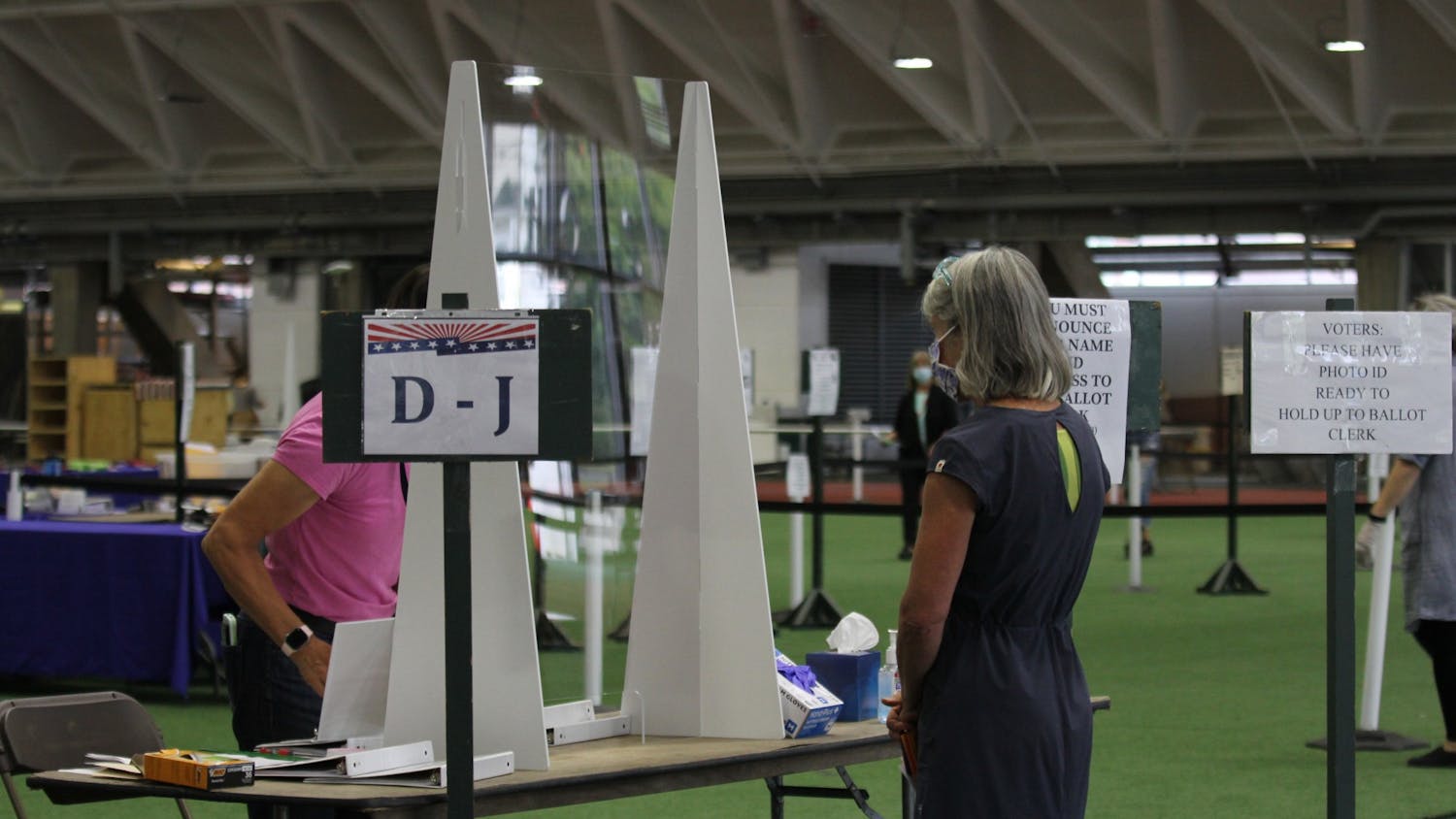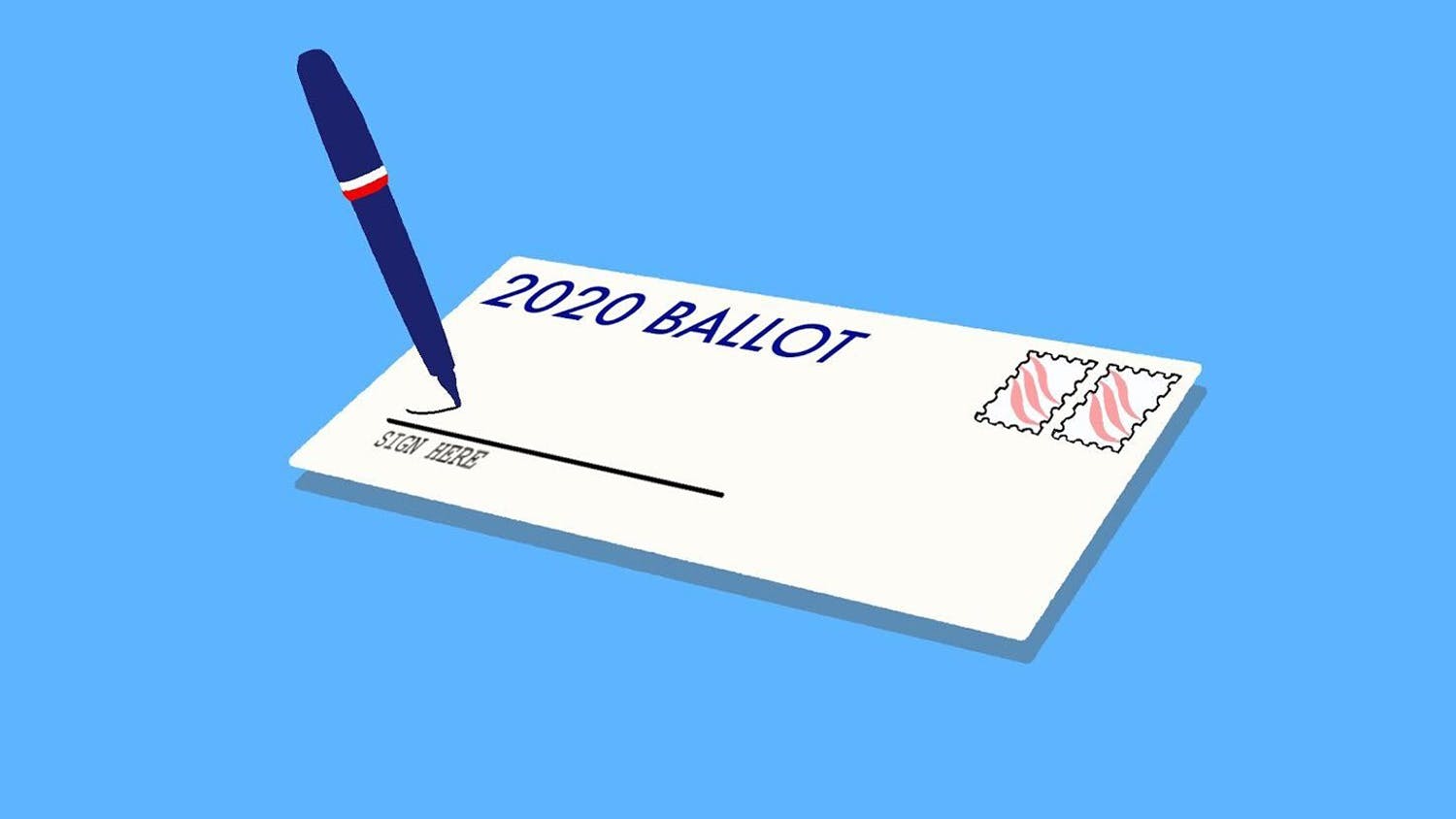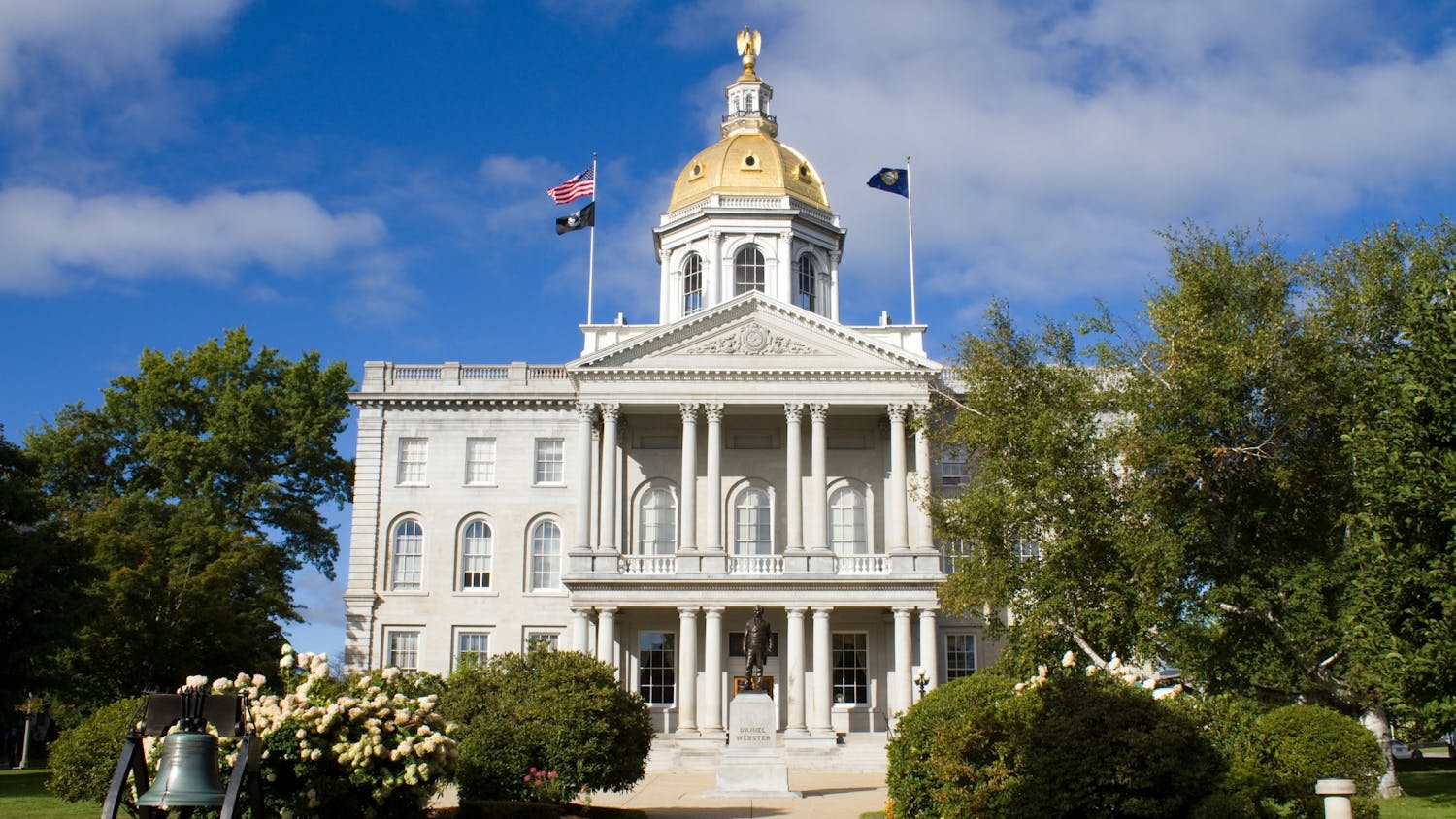With record numbers of Americans voting by absentee ballot in the upcoming general election, Dartmouth students have had to make choices about how to vote this year. While many are voting absentee due to physical distance from campus and COVID-19 concerns, others have chosen to vote in person on Election Day.
Under normal circumstances, voting by an absentee ballot in New Hampshire would only be allowed for reasons such as a physical disability or absence from the area during the election. However, the New Hampshire Secretary of State Bill Gardner declared in April that the COVID-19 public health crisis allows for absentee voting under the “physical disability” provision, allowing anyone to vote absentee this year.
Hanover town clerk Betsy McClain urged people to vote absentee this year to mitigate the spread of the virus. However, she acknowledged that some in-person voters are expected.
“Actually casting your vote in person is a right that many people don’t want to miss out on, so we are expecting a lot of students at the polls,” McClain said.
Marissa Onwuka ’24, who plans to vote in person on Election Day, said she is concerned that her ballot might not be counted if she mails it in.
Onwuka said she is “very scared” that President Donald Trump may use mail-in voting as a reason to claim voter fraud in the election. The president has repeatedly claimed without evidence that absentee voting by mail will lead to widespread voter fraud.
Although Sydney Fortner ’24, who is voting absentee by delivering her ballot by hand to the Hanover town clerk, described the absentee voting experience so far as “quick” and “easy,” she said that she is still worried about the signatures on her ballot. Fortner said that she is concerned some ballots may not be counted due to inconsistencies in signatures.
However, according to McClain, this common “stress point” among students is nothing to worry about.
“In New Hampshire, there are no forensic comparisons of signatures,” McClain said. “We just look to make sure that the absentee valid request form is signed and that the affidavit envelope is signed and our processing teams are prepared to say ‘Can one make a reasonable conclusion that the same person signed both?”
Other states do analyze signature matches, prompting the Democratic Party and several voting rights groups to file lawsuits in battleground states like Michigan, Arizona, Ohio and North Carolina.
McClain noted that, so far, “a lot of students already voted absentee,” and expressed hopes that the crowd at Hanover’s polling place would be “manageable” as a result.
She said that out of a total of 3,955 absentee ballot requests, she estimates that about 1,600 of those are from Dartmouth. Approximately 2,569 ballots have been sent back to the clerk’s office as of Monday, according to McClain, though she noted she does not know how many are Dartmouth voters.
Fortner noted that she is voting absentee because it offers her more flexibility, since she can drop off her ballot on her own schedule rather than voting on Election Day.
Absentee ballots can be filled out any time prior to the election as long as they are received by the town clerk by 5 p.m. on Election Day. Voters can also drop off their ballots outside Leverone Field House on the day of the election or vote in person at the field house from 7 a.m. to 7 p.m.
Although McClain stopped mailing out absentee ballots as of Oct. 19, voters can still request absentee ballots in person at the town clerk’s office or at a student registration drive while the town clerk is present.
Student Assembly has encouraged students via email, their website and a video to vote absentee, urging students to mail in their ballots by Oct. 27 to have them arrive before the deadline. SA’s voting committee has also organized a website called “Dartmouth Votes” to encourage student voting in New Hampshire.
In addition to encouraging early voting, McClain is encouraging students to register early. She said that many students — usually around 1,000 — vote and register on Election Day. Due to COVID-19, Hanover hopes to limit the number of same-day registrations this year by registering voters early, according to McClain.
On-campus students can register to vote through various voter registration drives hosted by SA, including one on Oct. 22 from 11 a.m. to 1 p.m. and one on Oct. 27 from 1 p.m. to 3 p.m at the Hitchcock Lawn tent. McClain said the first two drives, which were held earlier this month, returned about 150 ballots total. Students can also register at the town clerk’s office.
Rebekah Ruff ’24, who is currently living on campus, participated in the student voting drive on Oct. 16. As a student and a first-time voter, she said SA “made [her] feel more comfortable [registering], and it was more of a guided process.”
As both an international student and U.S. citizen, Onwuka came to the U.S. knowing she would participate in the election. Before registering to vote, she worried that the process would be difficult, but afterwards she said the process “felt like it was so easy.”
Whether at a SA drive or the town clerk’s office, students will need a Dartmouth ID or driver’s license to verify their age and identify themselves, as well as proof of citizenship in the form of a passport, birth certificate or passport card. If none of these documents are present, then the student can sign an affidavit verifying their identity, age and citizenship.
In addition, for students on campus, no confirmation of residency is required since the town supervisors will verify their domicile, ensuring compliance with New Hampshire’s new voter registration law that requires proof of in-state residence. Those who are in New Hampshire but not on campus must register at Town Hall and validate their New Hampshire domicile through a current lease or utility bill with their name on it. Students may sign an affidavit — in which voters swear that they live in New Hampshire — in place of these documents.





